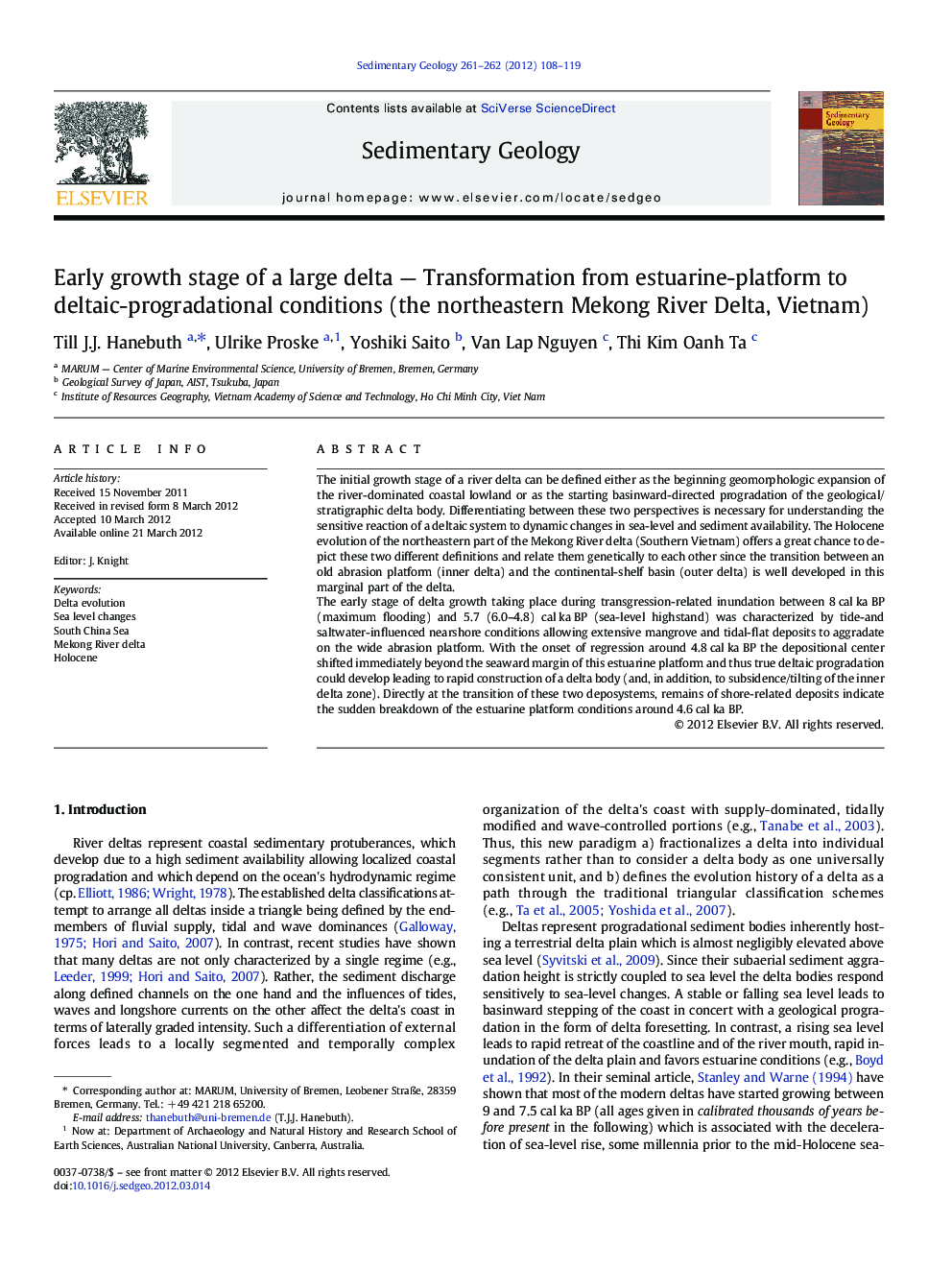| کد مقاله | کد نشریه | سال انتشار | مقاله انگلیسی | نسخه تمام متن |
|---|---|---|---|---|
| 4689824 | 1636091 | 2012 | 12 صفحه PDF | دانلود رایگان |

The initial growth stage of a river delta can be defined either as the beginning geomorphologic expansion of the river-dominated coastal lowland or as the starting basinward-directed progradation of the geological/stratigraphic delta body. Differentiating between these two perspectives is necessary for understanding the sensitive reaction of a deltaic system to dynamic changes in sea-level and sediment availability. The Holocene evolution of the northeastern part of the Mekong River delta (Southern Vietnam) offers a great chance to depict these two different definitions and relate them genetically to each other since the transition between an old abrasion platform (inner delta) and the continental-shelf basin (outer delta) is well developed in this marginal part of the delta.The early stage of delta growth taking place during transgression-related inundation between 8 cal ka BP (maximum flooding) and 5.7 (6.0–4.8) cal ka BP (sea-level highstand) was characterized by tide-and saltwater-influenced nearshore conditions allowing extensive mangrove and tidal-flat deposits to aggradate on the wide abrasion platform. With the onset of regression around 4.8 cal ka BP the depositional center shifted immediately beyond the seaward margin of this estuarine platform and thus true deltaic progradation could develop leading to rapid construction of a delta body (and, in addition, to subsidence/tilting of the inner delta zone). Directly at the transition of these two deposystems, remains of shore-related deposits indicate the sudden breakdown of the estuarine platform conditions around 4.6 cal ka BP.
Journal: Sedimentary Geology - Volumes 261–262, 15 June 2012, Pages 108–119